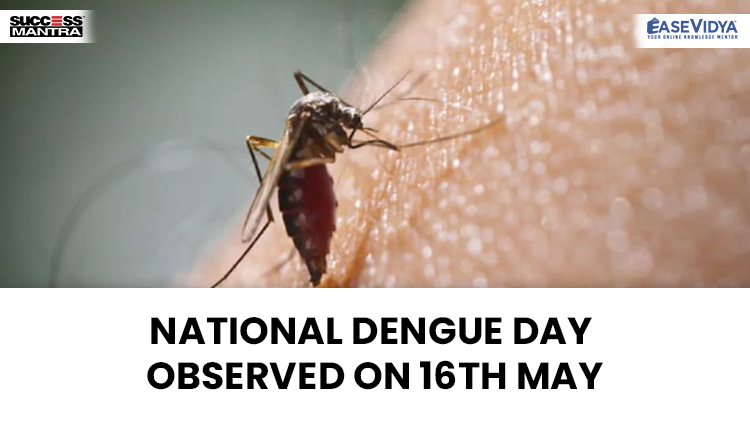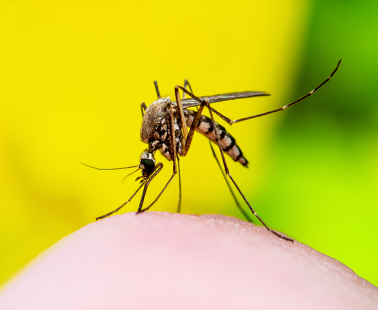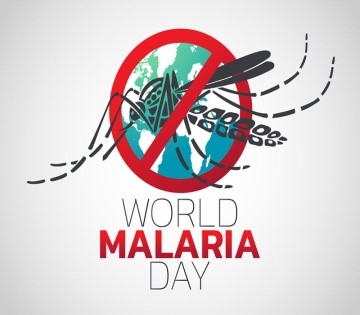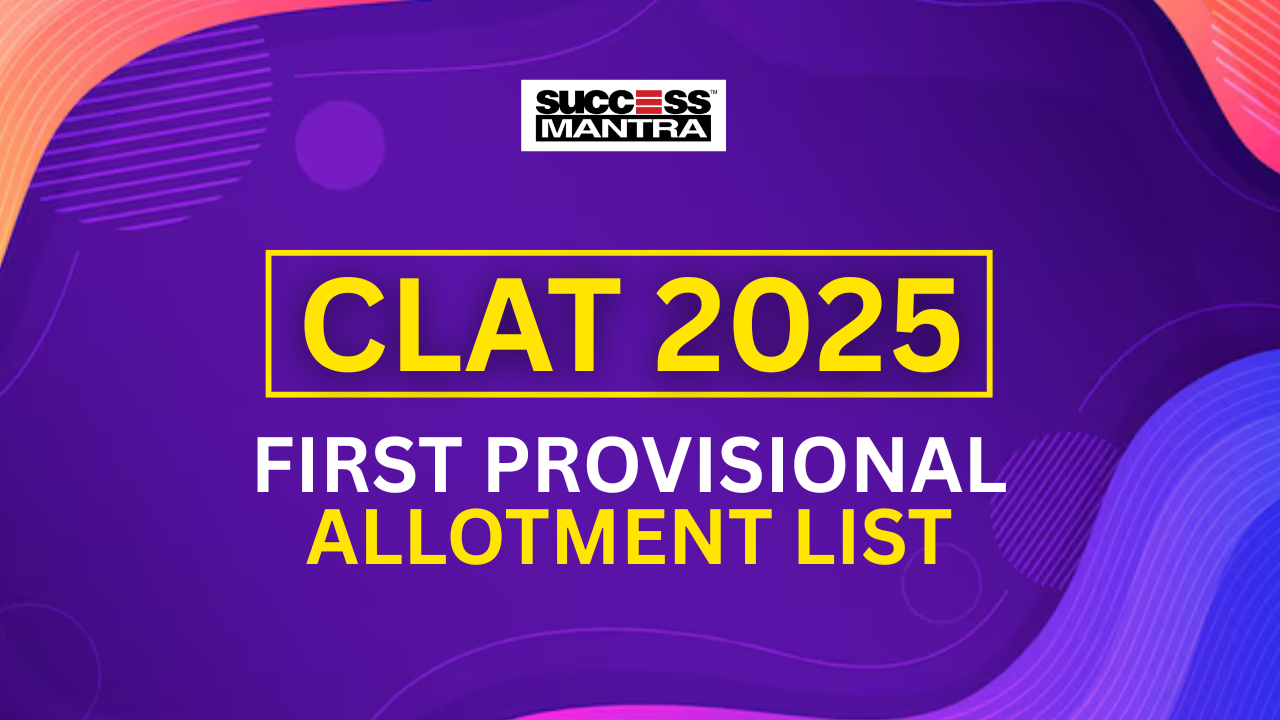
NATIONAL DENGUE DAY OBSERVED ON 16TH MAY
NATIONAL DENGUE DAY OBSERVED ON 16TH MAY
National Dengue Day is observed in India every year on May 16 to create awareness about Dengue as well as to intensify the preventive measures and preparedness for the control of viral disease before the transmission season starts in India. Dengue Day 2022 is also significant in making people aware about the facts of the viral disease which is caused by the Dengue virus (DENV, 1-4 serotypes). National Dengue Day 2022 in India is an initiative by the Ministry of Health and Family Welfare that has been working towards the prevention and control of viral fever in various states in the country. Maximum number of dengue cases in 2017 was reported from Tamil Nadu followed by Kerala, Karnataka, Punjab, West Bengal and other states.

Current Affairs Notes By Success Mantra Coaching Institute GTB Nagar Delhi CLICK HERE
DENGUE DAY 2022
Dengue Day is observed in India every year on May 16 to spread awareness about the vector-borne disease and its preventive methods. Dengue fever has continued to be a worldwide and regional danger which further imposes a public health burden on all communities despite the advancement in the medical and scientific field.
Dengue: Dengue is a mosquito-borne tropical disease caused by the dengue virus (Genus Flavivirus), transmitted by several species of mosquito within the genus Aedes, principally Aedes aegypti. This mosquito also transmits chikungunya, yellow fever and Zika infection. There are 4 distinct, but closely related, serotypes (separate groups within a species of microorganisms that all share a similar characteristic) of the virus that cause dengue (DEN-1, DEN-2, DEN-3 and DEN4). Other Mosquito borne – diseases
Zika Virus: Zika virus is a mosquito-borne flavivirus that was first identified in Uganda in 1947 in monkeys. It was later identified in humans in 1952 in Uganda and the United Republic of Tanzania. Outbreaks of Zika virus disease have been recorded in Africa, the Americas, Asia, and the Pacific. Zika virus disease is caused by a virus transmitted primarily by Aedes mosquitoes and can be passed from a pregnant woman to her fetus. Sexual transmission of Zika virus is also possible. There is no vaccine or medicine for Zika. Instead, the focus is on relieving symptoms and includes rest, rehydration and acetaminophen for fever and pain.
Chikungunya: Chikungunya is caused by a mosquito-borne virus. It is transmitted by Aedes aegypti and Aedes albopictus mosquitoes. Its symptoms are characterized by abrupt fever and severe joint pain, often in hands and feet, and may include headache, muscle pain, joint swelling or rash. There is no specific antiviral drug treatment for chikungunya.There is no commercial chikungunya vaccine.
RELATED: WORLD MALARIA DAY
World Malaria Day is observed on 25th April every year to spread awareness of the global effort to control and ultimately eradicate malaria. World Malaria Day was first held in 2008. It was developed from Africa Malaria Day, which was an event that had been observed since 2001 by African governments. The theme 2022 is "Harness innovation to reduce the malaria disease burden and save lives.”

WHAT ARE THE INITIATIVES TO CURB MALARIA?
The WHO has also identified 25 countries with the potential to eradicate malaria by 2025 under its ‘E2025 Initiative’. In India, malaria elimination efforts were initiated in 2015 and were intensified after the launch of the National Framework for Malaria Elimination (NFME) in 2016 by the Ministry of Health and Family Welfare. NFME is in line with WHO’s Global Technical Strategy for Malaria, 2016-2030, which guides the WHO Global Malaria Programme (GMP), responsible for coordinating WHO's global efforts to control and eliminate malaria. The National Strategic Plan for Malaria Elimination (2017-22) was launched in July 2017 which laid down strategies for the following five years. It gives year-wise elimination targets in various parts of the country depending upon the endemicity of malaria. Implementation of the High Burden to High Impact (HBHI) initiative was started in four states (West Bengal, Jharkhand, Chhattisgarh and Madhya Pradesh) in July 2019.
Distribution of Long Lasting Insecticidal Nets (LLINs) to high burden areas has led to a reduction in endemicity in these otherwise very high endemic states. The Indian Council of Medical Research (ICMR) has established Malaria Elimination Research AllianceIndia (MERA-India) which is a conglomeration of partners working on malaria control.
PRAVAHINI Current Affairs Notes By Success Mantra Coaching Institute GTB Nagar Delhi CLICK HERE
TEST YOURSELF
Q.1 National Dengue Day is observed in India every year on _________ to create awareness about Dengue as well as to intensify the preventive measures and preparedness for the control of viral disease before the transmission season starts in India?
- 16th May: ANSWER
- 14th April
- 8th August
- None of the above-mentioned
Q.2 From the given options, which of the following is/are correct regarding the theme for the National Vaccination Day?
- Vaccines bring us closer
- Immunization for all
- Vaccines Work for all
- None of the following
Q.3 Consider the given statements in the reference to the National Immunization Day & state which of the following is/are incorrect?
- National Vaccination Day is observed every year on April 6th as it was the first time on this day that the first dose of Oral Polio vaccine was given in India back in 2005.
- National Vaccination Day or National Immunization Day celebrates the Government of India’s Pulse Polio Program which was a remarkable initiative to eradicate polio from India.
- Only I is incorrect
- Only II is incorrect
- Both I & II are incorrect
- None of the above-mentioned
Q.4 In 2014, which of the following missions was launched under the Universal Immunization Program to better the health of mothers and children who are deprived of vaccination?
- Mission Indradhanush
- Mission Varuna
- Mission Suraksha
- None of the following
Q.5 World Immunization Week which aims to promote the use of vaccines to protect people of all ages against disease is celebrated every year in __________?
- Last week of May
- First week of February
- Last week of April
- None of the above-mentioned













iepfecpnk
NATIONAL DENGUE DAY OBSERVED ON 16TH MAY | Read Daily Article Editorials Only On Success Mantra Blog | Daily Article | Monthly Article | Weekly Article | Yearly Article | Most Requesting Articles | Legal Awareness Articles | Current Affairs | Passage Based Current Affairs | One Linear Current Affairs | Current Affairs For CLAT | Current Affairs For AILET | Current Affairs For Slat | Legal Aptitude Current Affairs | Law Current Affairs | Current Event | Current Affairs Pdf | Current Affairs Pdf In English | Current Affairs Pdf Free Download | Current Affairs MCQ | Current Affairs MCQS | Current Affairs Work Sheet | Current Affairs UPSC | Current Affairs BBA | Current Affairs BCA | Current Affairs BJMC | Current Affairs NCHMJEE | Daily Editorial | Monthly Editorial | Weekly Editorial | Yearly Editorial | Most Asking Editorials | Legal Awareness Editorials | Current Editorial | Passage Based Current Editorial | One Linear Current Editorial | Current Editorial For CLAT | Current Editorial For AILET | Current Editorial For Slat | Legal Aptitude Current Editorial | Law Current Editorial | Current Event | Current Editorial Pdf | Current Editorial Pdf In ENGLISH | Current Editorial Pdf Free Download | Current Editorial MCQ | Current Editorial MCQS | Current Editorial Work Sheet | Current Editorial UPSC | Current Editorial BBA | Current Editorial BCA | Current Editorial BJMC | Current Editorial NCHMJEE | Latest News In India | Latest News In Hindi | Latest News Delhi | Latest News Today India | Latest News Live | 3 Latest News | Latest News Today Delhi | Latest News Aajtak | News Articles India | News Articles For Students | News Articles 2022 | News Articles In English | News Articles In Hindi | News Article Example | Short News Articles | News Article Meaning | Success Mantra Delhi | CLAT Coaching In Delhi | Best CLAT Du LLB Institute In Delhi | Read Daily Article Editorials Only On Success Mantra Blog [url=http://www.gn76b898okcv1daa289ja0tj199807sbs.org/]uiepfecpnk[/url] iepfecpnk http://www.gn76b898okcv1daa289ja0tj199807sbs.org/ <a href="http://www.gn76b898okcv1daa289ja0tj199807sbs.org/">aiepfecpnk</a>
povdyqbvf
NATIONAL DENGUE DAY OBSERVED ON 16TH MAY | Read Daily Article Editorials Only On Success Mantra Blog | Daily Article | Monthly Article | Weekly Article | Yearly Article | Most Requesting Articles | Legal Awareness Articles | Current Affairs | Passage Based Current Affairs | One Linear Current Affairs | Current Affairs For CLAT | Current Affairs For AILET | Current Affairs For Slat | Legal Aptitude Current Affairs | Law Current Affairs | Current Event | Current Affairs Pdf | Current Affairs Pdf In English | Current Affairs Pdf Free Download | Current Affairs MCQ | Current Affairs MCQS | Current Affairs Work Sheet | Current Affairs UPSC | Current Affairs BBA | Current Affairs BCA | Current Affairs BJMC | Current Affairs NCHMJEE | Daily Editorial | Monthly Editorial | Weekly Editorial | Yearly Editorial | Most Asking Editorials | Legal Awareness Editorials | Current Editorial | Passage Based Current Editorial | One Linear Current Editorial | Current Editorial For CLAT | Current Editorial For AILET | Current Editorial For Slat | Legal Aptitude Current Editorial | Law Current Editorial | Current Event | Current Editorial Pdf | Current Editorial Pdf In ENGLISH | Current Editorial Pdf Free Download | Current Editorial MCQ | Current Editorial MCQS | Current Editorial Work Sheet | Current Editorial UPSC | Current Editorial BBA | Current Editorial BCA | Current Editorial BJMC | Current Editorial NCHMJEE | Latest News In India | Latest News In Hindi | Latest News Delhi | Latest News Today India | Latest News Live | 3 Latest News | Latest News Today Delhi | Latest News Aajtak | News Articles India | News Articles For Students | News Articles 2022 | News Articles In English | News Articles In Hindi | News Article Example | Short News Articles | News Article Meaning | Success Mantra Delhi | CLAT Coaching In Delhi | Best CLAT Du LLB Institute In Delhi | Read Daily Article Editorials Only On Success Mantra Blog <a href="http://www.gk39809assh439c360z56cm3gbzg78rqs.org/">apovdyqbvf</a> [url=http://www.gk39809assh439c360z56cm3gbzg78rqs.org/]upovdyqbvf[/url] povdyqbvf http://www.gk39809assh439c360z56cm3gbzg78rqs.org/
gqtchrpsto
Latest News on Education & LAW Exams Blogs | Success Mantra [url=http://www.gq750n97bjbc1z3v563m85dy7v67k2das.org/]ugqtchrpsto[/url] <a href="http://www.gq750n97bjbc1z3v563m85dy7v67k2das.org/">agqtchrpsto</a> gqtchrpsto http://www.gq750n97bjbc1z3v563m85dy7v67k2das.org/